Doctors know what's wrong at a glance, so why do they ask patients to take tests?
I am also very confused, once, my middle finger red swelling pain, feel very serious, to the tertiary hospital to go, who knows that the surgery only deputy chief physician sitting, explain the situation, he will be billed to do ultrasound, X-rays, I said it is a cellulitis cut and drain the pus, don't make it so complicated, he said it is the inguinitis! I said I only had 600 yuan with me, can you help me save some money? He said that after the operation, you have to hang three days of water, a time will be 180 yuan, the operation also need anesthesia, surgical fees, dressings, etc., but also the cost of removing stitches. I said can I take medicine instead? He said no! I had to say I first go back to borrow 400 yuan, skipped! Changed a community health center, the surgeon said we are cheaper than the tertiary hospital as long as 800 yuan, and then change a, the surgeon is not in the class, only the general practitioner, she called to consult the surgeon, after the surgeon, gave me a box of cefradine, 7.5 yuan. She told me that they don't have ichthyol here, so go to the front pharmacy and buy one and apply it on the head of your middle finger, and come back in a few days if it's not good. Once I went home, I took it and rubbed it on, and it was fine! I didn't let the surgeon do it, so next time I run into them, I'll be too embarrassed to greet him.
Doctors are not gods, and illnesses are not simple arithmetic problems that can be solved at a glance; many times they need to be troubleshooted.
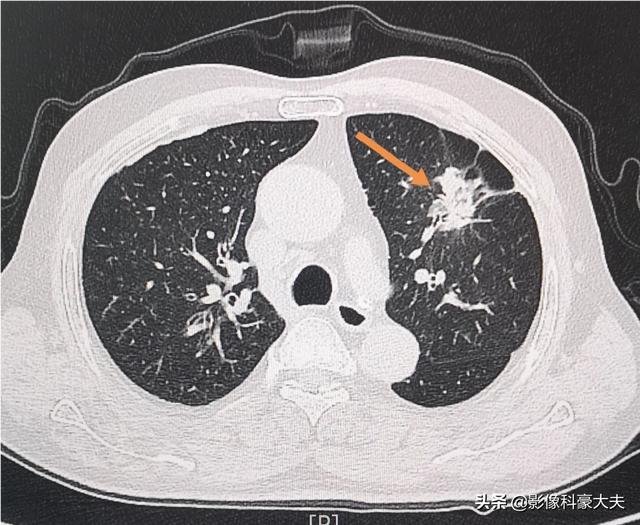
This is a patient we met today with an enlarged prostate and difficulty urinating in preparation for surgery. The routine need for a thorough workup before surgery to rule out some major diseases led to the discovery of adenocarcinoma of the left side of the lungs, and he hadn't had any lung symptoms yet.
At this point, you can't do prostate surgery first, you have to remove the lung cancer urgently!
There are many malignant diseases whose early symptoms are so mild that at a glance there are infinite possibilities, and falsehoods must be ruled out by examination.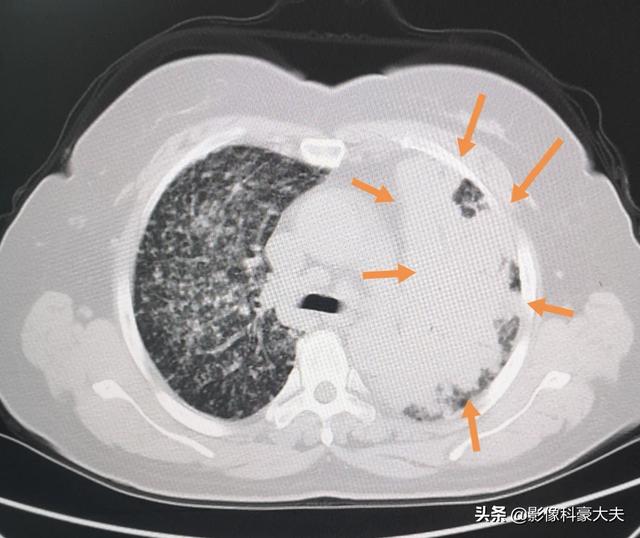
This is another female patient today who did a barium meal to check her stomach because she didn't like to eat, which resulted in a fluoroscopy that revealed shadows growing in her lungs, followed by a chest CT that confirmed the diagnosis of advanced lung cancer with extensive metastases ......
There are also some early myocardial infarction, manifested as shoulder pain, toothache, hand numbness, etc., if you do not do the examination, it is likely to miss the early rescue opportunity.
Should doctors rely on advanced instruments?
Many people funny doctor will not see the patient, only do all kinds of tests, this is the 21st century, the 5g era is coming soon, good use of all kinds of advanced equipment, in order to plug the wings of science and technology, greatly improve the diagnosis of the accuracy rate, enhance the medical skills!
This is the case in every industry. We cannot reject high-speed railways and airplanes just because riding a bicycle does not consume fuel and is green. We have to be good at accepting new things, progress and changes in the world, and not be stubborn conservatives.
I'm Dr. Howe in Imaging. Welcome!
Emergency came to a middle-aged woman, to the right lower abdomen severe pain intolerable to hospital, ask the history of postprandial pain, progressive aggravation, there is nausea and vomiting, the examination of the right lower abdominal pressure and pain, there is muscle tension rebound pain. Ultrasound of the appendiceal region was done to see the effusion, such a case you feel like acute appendicitis, right? Coincidentally, it happens to be a doctor's acquaintance, the family's intention is to urgently do the operation, the doctor did not think much about it, it was scheduled for surgery, open the abdomen after the appendix is no problem, and then probe the pelvis, the ovary tilt, rushed to find gynecological consultation, to the family to account for the condition and surgical program, it is good to see that the family is reasonable, or else it is inevitable that a lawsuit.
There is a case, we may have heard of similar cases, two people came to the emergency room, said the car accident, two people are very angry and did not argue, asked about the process of motorcycle collision with an electric car, one of the arm has a fall, did an X-ray and no fracture. Asked the other, answered nothing, the doctor asked where are not hurt ah, the patient replied: on the stomach this poked a little, this will not hurt. The doctor checked, no bruising and swelling, but still do not feel confident, let a CT abdomen to check, or consequences. The patient also did a, this can be found in the problem, the spleen has contusion, although not serious, but also need to stay in bed, and hasten to apply for hospitalization.
To say half a day, just want to say, naked eye judgment always have a certain error, even if the imaging examination will have errors, doctors are afraid of patients have something, more afraid of something can not be found.
This is a good question. Indeed, in the real world, there are many situations in which this is indeed possible, so how can we face this situation correctly? Dr. Zhang will explain this issue to you today.
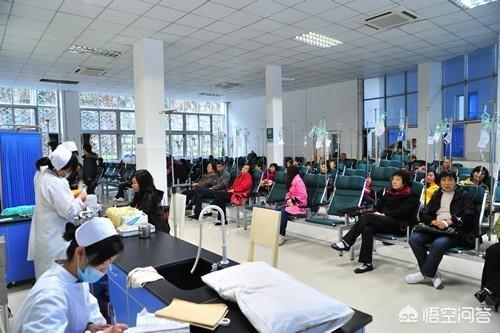
First of all, many doctors know what kind of disease they know at first sight of the patient, and this is also a probability event, which cannot be said to be 100% certain. In most cases, the diagnosis of a disease in modern medicine requires some evidence, that is, we often need some tests to support our definitive diagnosis of the disease. For example, in the case of infectious diseases, sometimes it is a bacterial infection, sometimes it is a viral infection, then even if the doctor can be very confident that the patient is infected, but the cause of the infection requires a blood test to see whether it is a bacterial or a viral infection, which is why the doctor needs to do further tests. In fact, this is also the case for many other diseases, which is also an important significance of the examination.

Secondly, even if the doctor inferred that the patient is a certain disease with a high probability of events, this time there is still a need to do some tests, in addition to clarify the diagnosis, there are also some cases of the need for further review of the need. For example, many times we go to the hospital to see the doctor, the reason why the doctor prescribed a lot of tests, many times is the need to review the patient's condition to see the change, this time even if the patient looks on the surface of the improvement, but also need to check to make it clear that this is for the need to monitor the regression of the disease. For example, for hyperlipidemia this disease, in addition to the initial examination is a clear diagnosis, most of the later examination is a monitoring of the changes in blood lipids, to see whether the treatment effect is good after giving treatment, or there is no significant improvement, in order to give targeted further treatment.
Again, for many patients, the doctor checks them also to detect adverse reactions, or side effects as they are known in the common parlance, to their existing treatment regimen. For example, many patients who are taking statin lipid-lowering drugs will need to have their liver function and creatine kinase checked on a regular basis as a way to see if any side effects of taking statins are occurring. This is when the tests are done to monitor for side effects, and they do serve a purpose.
In short, to do the examination of this issue, many times is indeed necessary in the medical process, the vast majority of doctors are also reasonable to open the examination program, as long as it is in the state-recognized regular hospitals, in fact, we can still rest assured. I hope that Dr. Zhang's article today can help you.
For more health knowledge, you can click the following column to get: Dr. Zhang's blood lipid course
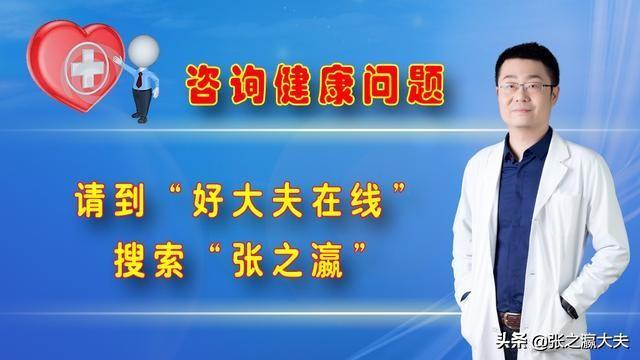
Tell a true story: the story happened at the beginning of this month, once I was on the night shift when a patient with epigastric pain, the patient came to me and said: doctor quickly help me to prescribe some medication, my stomach pain again, this time I do not understand why the pain is more powerful than before! I took a look at the patient, I feel that the pain is really quite strong, face is a little pale, but also sweaty, because the patient has been emphasizing their previous "stomach disease" history, I initially judged that it may be a gastroduodenal ulcer attack, but I'm still not assured that the patient can not not rule out the possibility that the cardiac infarction, arterial entrapment, and other critical illnesses. I was still worried. So I first asked the patient to take an ECG to rule out the possibility of a heart attack. When the patient heard that he wanted to do the examination, he got angry at me: I know my own condition, I'm in so much pain now, you give me pain relief first, and then you want to check and rip me off, and when I'm not in pain, you can check me at your own discretion! When I heard this, I was so angry in my heart. I was thinking about the patient, but the patient didn't understand me! Although I was angry, I still patiently explained to the patient, and the patient finally agreed to do an ECG first. Guess what the final result was? --Acute extensive anterior myocardial infarction!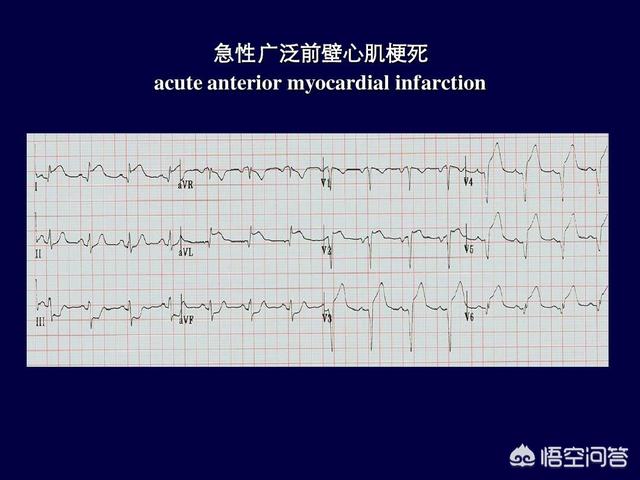
Doctors are not gods, and without the certification of auxiliary examinations, there is no guarantee that 100% of the judgment is correct! In many cases, the doctor through the consultation and physical examination, there is indeed a preliminary judgment on the disease, but in order to certify their own judgment is correct, this time through the assistance of instrumental examination. After all, Western medicine is different from traditional Chinese medicine, theoretical systems are also different, Chinese medicine may take the pulse, look at the tongue can be diagnosed, Western medicine needs to have a solid basis, the actual conclusions of the examination, so do not do like the Chinese medicine so "dash".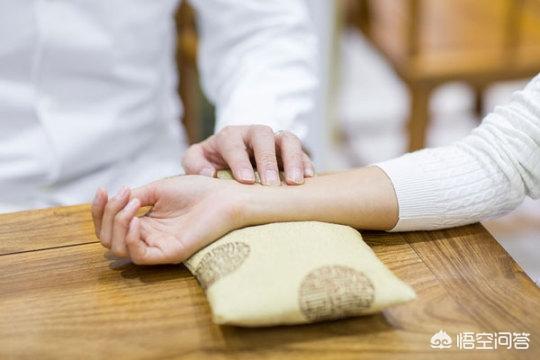
Doctors can sometimes tell what the disease is at a glance, but in order to develop a better treatment plan, they often need to determine the body's condition, the severity of the lesion, the extent of the lesion, whether there is any surrounding aggression, and other factors affecting the treatment plan, which can not be judged by the naked eye, and then you need to use the instrumentation of the examination.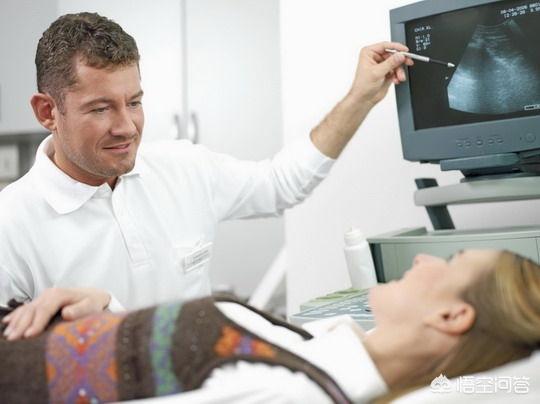
I am a general practitioner who uses easy-to-understand words to spread health knowledge to everyone, if you find it useful, you can forward it to your friends who need it!
1. For hospitals to generate revenue.
2. For doctors, avoiding responsibility.
3. For the people to spend money.
In short all three parties are on opposite sides and no one can be trusted.
Look to know what is the disease, this is only the most basic experience judgment, or the most common problems, but here there is a great risk, will be committed experience dogmatism, resulting in misjudgment, this time there is a possibility of death, so a responsible doctor, absolutely not just based on experience judgment.
To cite the simplest example, in the case of the new coronary pneumonia this time around, at the very beginning, if we rely on experience and see that the patient has a fever and cough, and so on, the doctor may think that it is influenza. If no further examination is conducted on the patient, it will result in the patient getting more and more serious.
The reason why modern medicine does tests is to try to minimize the misjudgment of doctors and to try to treat the symptoms. The human body, despite its complexity, and there are still organs that we do not fully grasp, but on the basis of generation after generation of exploration, understand most of them, and through detailed examination, know where the source of the disease is.
Of course, there are some folk look at the "god doctor", this is the benevolent, the wisdom of the matter, anyway, they talk about the treatment of disease with fate, the accident can only represent the patient is not lucky. This kind of "miracle doctor", we do not dare to compare, after all, human life is a matter of the heavens.
To answer this question, it may be better to start with a case study to elaborate on the relevant analysis.
Recently, I saw a 50-year-old female patient in the specialist clinic, whose main symptoms were: insomnia, excessive sweating, restlessness, and low mood. In other clinics diagnosed as: depression. There are also hospitals diagnosed as: phytoneurological disorders. She came here to seek treatment, hoping to adjust her medication properly.
Detailed history and symptoms were asked, previous tests she had done were checked (to save her money), and almost all the tests that should be done were done, except for the cranial CT, and it was intuited from experience that this patient was not really psychosomatic, because there were some extremely subtle aspects of her symptoms that were not easily detectable from the ordinary depressive symptoms.
When I suggested a head CT, she was hesitant because her original intention was for me to adjust her medication properly, and the family member who followed her said decisively, "yes, yes".
I told the family, and also to assuage the patient's concerns, "There are benefits to having a head CT, and it's time to have one done, even if it's just for your own peace of mind."
A short while later, the results of a CT scan of the head came back: a space-occupying lesion. A more literal expression would be "advanced brain tumor".
It's possible that she might have a chance of surviving if she'd had a head CT done at her first psychiatric appointment.
The principles of my practice are "safe, effective, economical and with minimal side effects".
I hope that hospitals and fellow physicians follow this principle.
To truly realize the "healer's parental heart" is a blessing for the doctor, a blessing for the patient, and a blessing for the society.
How nice it would be to live in a blessed society!

A: He doesn't know from two looks! What if you say it wrong! The responsibility would be big! Doctors have to go through the procedure, not to save you money, but to save their reputation and the hospital from accidents prevail! In the early days there were no biochemical tests! Even if there were, there were very few! Some can not be tested doctors can only use their eyes to see. Nowadays, science continues to progress, the doctor to see the doctor to be foolproof. It is also responsible for all aspects of it!
Going to the doctor is not about saving money! If you don't feel like you have a big problem you can take care of it yourself to save money, you almost always have a small medicine cabinet at home nowadays! If you don't feel you can handle it yourself, you should seek medical attention in a timely manner. So as not to delay and cause serious illness. Since you go to the hospital, you have to follow the doctor's way, his way is also recognized by the medical profession!
Doctors need to be credentialed to see patients! A credential is a national medical recognition of his level of competence! It is the examination to come! Another national Ministry of Health, provinces and cities, the health system is strictly controlled, so doctors do not dare to do some unclear things! Both jeopardize the patient! They are also dereliction of duty!
December 3, 2021 Sharp
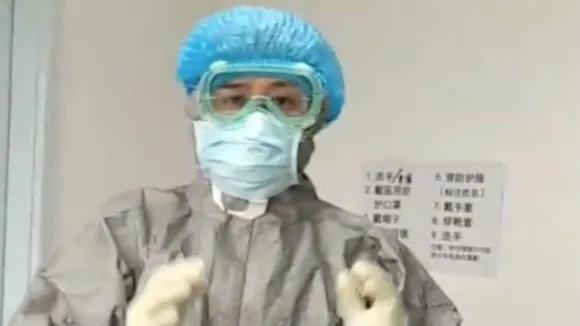
Doctors know what ails them at a glance, so why do they still ask patients to undergo tests? No doctor knows what ails him at a glance. Doctors are not immortals and do not have such a powerful fortune-telling function.
With the way medicine is today, no matter what disease is diagnosed, it has to be based on evidence and supported by evidence before a diagnosis can be made, this is called evidence-based medicine. No one that doctor looks at the disease and makes a blind guess and makes a diagnosis. Of course the doctor in the first look at the patient, plus ask some medical history, will have their own thinking, may also have their own preliminary diagnosis. But it's just a preliminary diagnosis without evidence. What to do? You can only do tests to find evidence to support the diagnosis or rule out other diagnoses. With the development of medicine, more and more diseases are recognized by medical professionals. Those who used to think that they had the same symptoms and could diagnose the disease, have improved their understanding and found that it is actually not the disease. Other tests are needed to separate the two diseases.
Doctors don't need to test for every disease, and doctors need to have a lot of experience and good diagnostic thinking in seeing patients in order to determine whether to test or not to test, and which tests to do to support their diagnosis.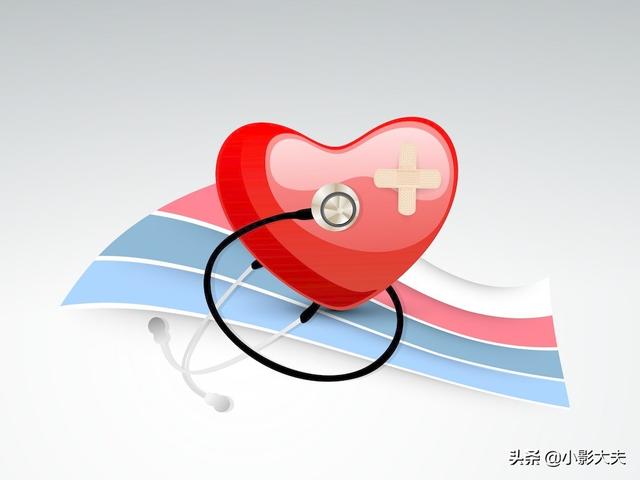
There are many diseases that show the same symptoms, for example, everyone goes to the doctor with a cough, and both people have a simple cold and cough. Not really, one could be pneumonia and the other could be lung cancer. If you don't do the tests and simply give some cough medicine, then it's a delay. You say, why do tests for a cough that can be seen at a glance? The reasoning is self-evident.
Some of my friends are going to say again, "When there were no tests in the past, why could the doctors also see the patients? In the past, there was no examination, the doctor can see the doctor, but the misdiagnosis rate is also very high ah. A lot of the diagnosis is not clear in the end, delayed to the end of the treatment, and finally do not know how to go.
At present, the continuous development of medicine, the application of advanced equipment, the diagnostic level of doctors is also constantly improving. Only accurate diagnosis can lead to more accurate treatment, and no one wants to misdiagnose or delay treatment. Therefore, more understanding is also more trust.
This question and answer are from the site users, does not represent the position of the site, such as infringement, please contact the administrator to delete.